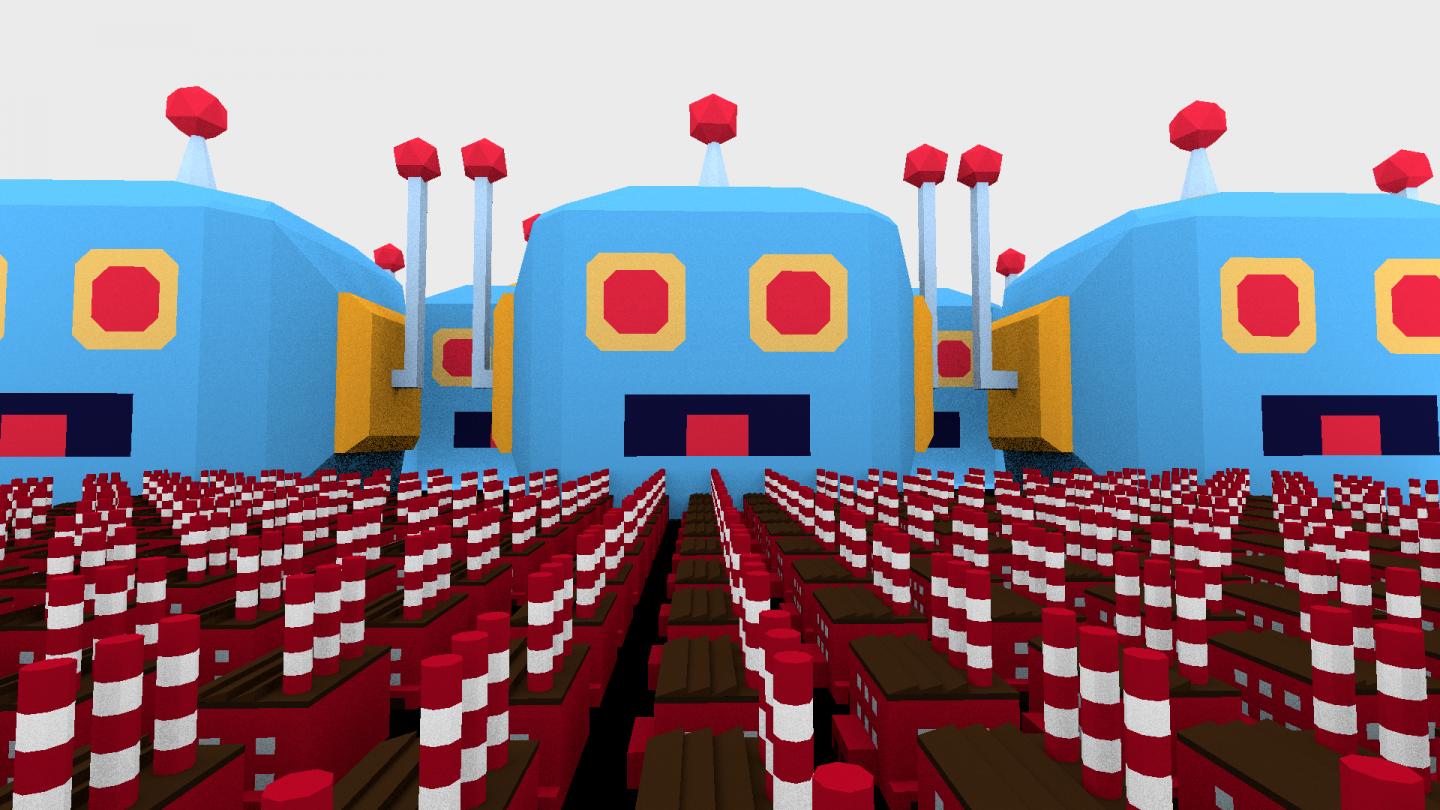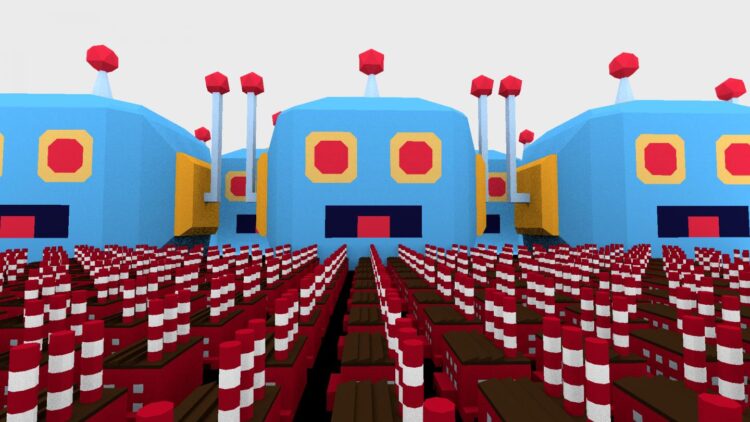Online game developed by researchers shows challenges facing the world of work in the future

Credit: Francis Tseng
We live in a world where robots increasingly build our cars, algorithms trade stocks and computers translate texts. Robotics, digitalization and artificial intelligence are transforming numerous professions. Some jobs are disappearing, while other new ones are being created. The online game ‘The Automated Life’, launched recently, now enables users to try out how they might survive in an increasingly automated world of work. The game was developed in the Center for Humans and Machines at the Max Planck Institute for Human Development.
What will the future of work look like when artificial intelligence and robots do many of the tasks previously performed by human beings? What knowledge and skills will be in demand in the future? Which jobs will no longer be required? Which new ones will be added? These are the issues addressed by the online game ‘The Automated Life’, designed and developed by Alex Rutherford of the Center for Humans and Machines at the Max Planck Institute for Human Development. Players start out with a job that is severely threatened by automation. They have to save up for further training and apply for new jobs, which in turn offer new options for further training programs and careers. Meanwhile, automation relentlessly advances as jobs are constantly eliminated by new technological developments. Bearing in mind how many more years there are to go before they retire and keeping an eye on their bank balance, players have to be quick to make smart decisions so as to win out against automation — and finally enjoy a well-deserved retirement.
“We’re seeing time and again how the accelerating pace of automation is causing people a lot of stress and generating a sense of fear about the future. Our aim was to capture this in a game and show how people in low-paid jobs experience automation,” says Alex Rutherford, Senior Research Scientist at the Max Planck Institute for Human Development. At the Center for Humans and Machines, he leads a working group on the future of work, conducting research at the intersection between network science, labor economics and artificial intelligence. Alex Rutherford himself had the idea for the game and he was in charge of the creation process, which also involved New York based game developer Francis Tseng. “In computer games, the developers set the rules — players can only make limited decisions. So in fact it’s rather similar to automation in working life,” says Francis Tseng.
The team at Center for Humans and Machines has caused a stir in the past with its scientific online games. MyGoodness, led by Associate Research Scientist Edmond Awad, is a game about altruism that rates people based on how generous they donate, while BeeMe, led by CHM Research Scientist Niccolo Pescetelli, was an immersive “social game” played on a huge scale at Halloween in 2018 where the crowd collectively controlled a real human being and sent him on an adventure.
The aim of the online game ‘The Automated Life’ will be to analyze players’ data anonymously so as to be able to use it for further research. “Automation in the world of work is an issue that affects us all in some way and confronts society with significant challenges. That’s why research is needed that explores the problems and identifies potential solutions,” says Alex Rutherford, Senior Research Scientist at the Max Planck Institute for Human Development.
###
To the online game: https:/
Media Contact
Elena Hungerland
[email protected]





